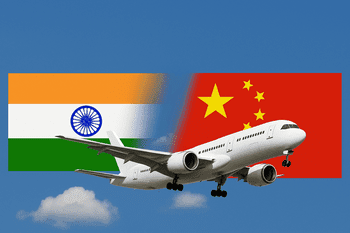
Living in China is an exciting adventure, but navigating personal finances as an expat can be complex.
This guide offers up-to-date, practical strategies for budgeting, banking, taxes, and investments, with a focus on real-world challenges and solutions.
Understanding the Cost of Living in China
The cost of living in China varies widely by city and lifestyle.
Below is a comparison of typical monthly expenses (as of 2024) in major cities, based on data from Numbeo and Expatistan:
| Expense Type | Beijing (Tier 1) | Chengdu (Tier 2) | Xi’an (Tier 2) |
|---|---|---|---|
| Rent (1BR, city center) | ¥8,000 | ¥3,500 | ¥3,000 |
| Utilities | ¥400 | ¥300 | ¥300 |
| Local Restaurant Meal | ¥40 | ¥25 | ¥20 |
| Imported Groceries (monthly) | ¥1,200 | ¥800 | ¥700 |
| Public Transport (monthly pass) | ¥200 | ¥120 | ¥100 |
| Private Health Insurance (basic) | ¥1,000 | ¥1,000 | ¥1,000 |
Tip: Costs can fluctuate due to inflation and exchange rates. Always check recent data before making financial decisions.
Setting Up Banking in China
Opening a local bank account is essential for daily life.
Major banks include ICBC, Bank of China, and China Construction Bank.
Required Documents:
- Valid passport
- Work or residence permit
- Proof of address (sometimes required)
Digital Payments:
Mobile payment platforms like Alipay and WeChat Pay dominate transactions.
Note that some features may be limited for foreigners without a Chinese bank card.
See Alipay’s guide for foreigners for details.
International Transfers & Currency Controls:
China enforces strict currency controls.
Annual limits apply (typically $50,000 USD per year for individuals), and documentation is required for large transfers.
Services like Wise can help, but always check the latest SAFE regulations (State Administration of Foreign Exchange).
Budgeting and Saving Strategies
Track Expenses:
Apps like Money Lover and You Need a Budget (YNAB) support multiple currencies and can help you monitor spending.
Emergency Fund:
Aim to save 3–6 months of living expenses.
This is especially important in China, where sudden job changes or health issues can be disruptive.
Sample Monthly Budget (Shanghai, 2024):
| Category | Amount (CNY) |
|---|---|
| Rent | 9,000 |
| Utilities | 400 |
| Food | 2,000 |
| Transport | 200 |
| Insurance | 1,000 |
| Entertainment | 1,000 |
| Savings | 2,000 |
| Total | 15,600 |
Understanding China’s Tax System
China’s tax laws for expats have changed in recent years.
As of 2024, expats are taxed on worldwide income if they reside in China for 183 days or more per year.
Income Tax Rates:
Progressive rates from 3% to 45%. See the official tax table for details.
Tax Treaties:
Many countries have agreements with China to avoid double taxation. Check your country’s tax treaty status.
Recent Changes:
Tax-free allowances for housing, education, and language training have been extended for many expats till end of 2027.
Consult a qualified tax advisor for personalized advice.
Investment and Retirement Planning
Investment Restrictions:
Foreigners face limitations when investing in Chinese stocks, mutual funds, or property.
Most direct stock market access is via the Qualified Foreign Institutional Investor (QFII) program.
Real estate purchases are possible but require at least one year of residency and government approval.
Offshore Investments:
Many expats invest through offshore accounts or in their home countries. Always consider currency risk and repatriation restrictions.
Retirement Savings:
Some expats contribute to China’s pension system, but most rely on private or offshore retirement plans. For more, see China’s Social Security System.
Insurance and Digital Security
Insurance:
Beyond health insurance, consider renter’s, liability, and life insurance.
International providers like Allianz and Cigna offer expat-friendly plans.
Digital Security:
With the prevalence of mobile payments, be vigilant against scams and phishing. Use strong passwords, enable two-factor authentication, and only download apps from official sources.
See US Embassy’s guide to avoiding scams in China.
Real-Life Example
“When I moved to Shanghai, I underestimated the cost of imported groceries and didn’t realize how strict the rules were for transferring money home. Joining local expat forums and consulting a bilingual accountant helped me avoid costly mistakes.” — Sarah, UK expat in China
Resources and Further Reading
- Numbeo: Cost of Living in China
- Expatistan: China Cost of Living
- China Tax Bureau (English)
- SAFE: Currency Controls
- China Briefing: Social Security
- Expat Forums: Reddit r/China, Internations
Conclusion
Managing your finances in China requires careful planning, up-to-date information, and an understanding of local regulations.
By leveraging the right tools, seeking professional advice, and staying informed, expats can enjoy a secure and prosperous life in China.



